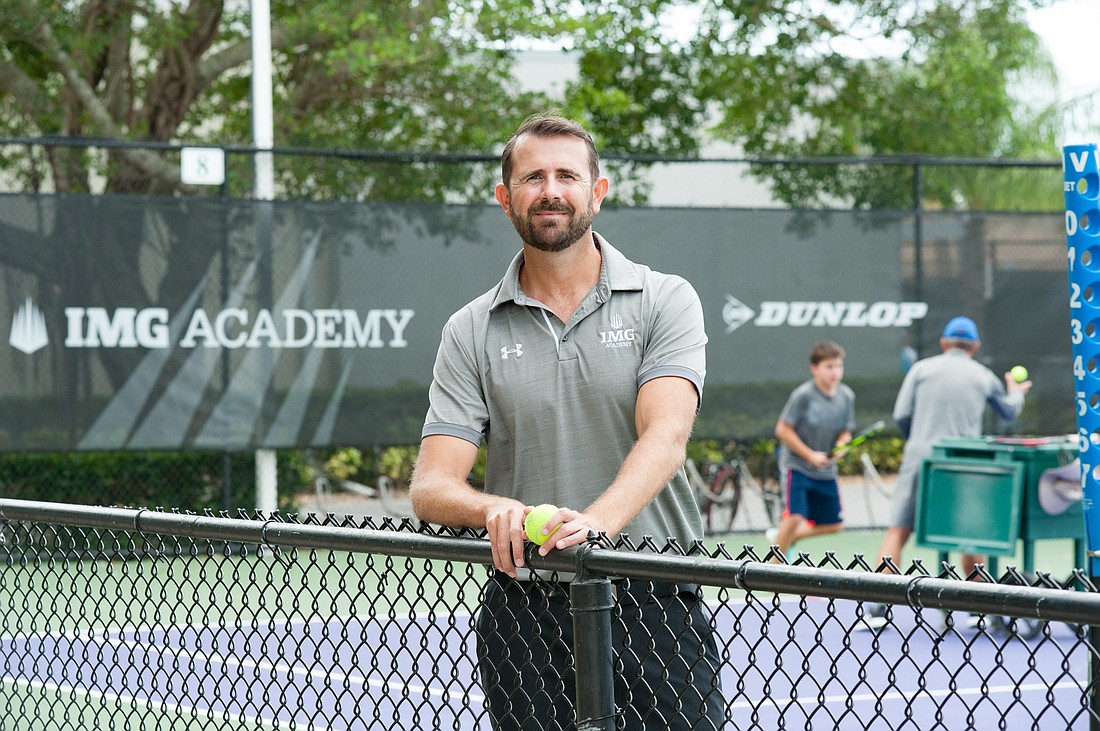- April 15, 2024
-
-
Loading

Loading

With over 1,100 student athletes and eight sports, IMG Academy in Bradenton is known worldwide for training elite athletes. The school has a preparatory boarding school, youth camps, college and professional athlete training and sports team training.
Duncan Simpson, head of mental conditioning at IMG Academy, oversees a staff of 12 mental conditioning coaches who help students ages 10 to 18 at the school. He now primarily works with tennis players and corporate groups coming to IMG.
Mental conditioning, Simpson says, isn’t just for athletes. The training can also help people in different fields — including business — perform better.
First, Simpson says it’s important for athletes to understand who they are and identify key values. From there, they can talk about how values like integrity play into sports or schoolwork.
In the business world, he says effective leaders understand their key values, not just for themselves but their organization’s values, including the mission and vision driving the company. “When things get really tough, those are the things we come back to,” he says.
Training also includes getting students to think about what path they’re on. Some students are elite athletes while others are recreational players. It’s important, Simpson says, to have well-defined developmental stepping stones to help goals become attainable.
“A lot of times it’s just simplifying things down: ‘Going into tomorrow’s tournament, what are your three keys to success?’” — Duncan Simpson, head of mental conditioning, IMG Academy
Another obstacle common to business leaders is faced by students at IMG, too. “What’s incredibly challenging is time management for these students,” Simpson says. “We really have to sit down with them and talk about, ‘what are your priorities? You have X amount of hours in the day. How do you prioritize this, this and this?’”
Simpson and his team coach individual students as well as groups. “A lot of times it’s just simplifying things down: ‘Going into tomorrow’s tournament, what are your three keys to success?’” He wants them to articulate what they can control. An athlete could respond with, “‘I need to control my focus, my body language and my attitude.’”
Another key to the training? Mindfulness. Simpson says mindfulness can have a big impact on athletes — and others. “A lot of the work I do around tennis is built around focus and bringing our focus back to the present moment,” he says.
He asks athletes, “‘what are the most important things you need to focus on?’” and “‘what are the things that distract you the most?” When people know what distracts them, they can develop a plan to minimize the distractions and refocus.
Simpson says his mindfulness training includes students practicing different types of breathing. He’s also taken a group of tennis players out for mindful walking. As they walked around campus, he asked them what they noticed. He had them take off their shoes and stand on the grass in bare feet, asking them, “‘what do you hear, see and smell?’” The goal? Get them to connect to the present moment.
It translates to performance — athletic and otherwise. On the court, Simpson says they use different reminders to focus and come back into the moment, such as holding the ball in their hands or pressing their feet into the ground.
For an elite group of female tennis players Simpson works with, building confidence has been a big mental conditioning skill this year. He trains them to use body language to build confidence, walking with their heads and rackets up and making themselves big. Self-talk is also key to confidence, he says. People should consider what they say to themselves on a daily basis, and Simpson says people should ask themselves, “Moment to moment, how do you evaluate yourself?”